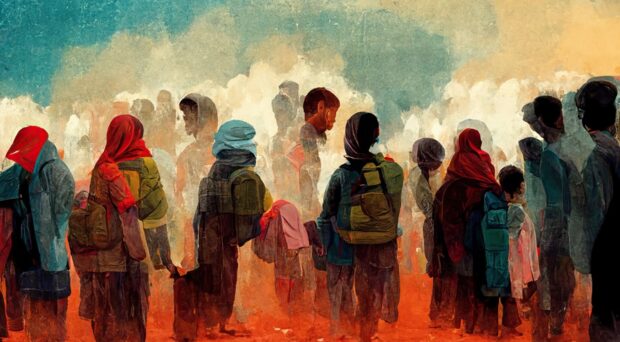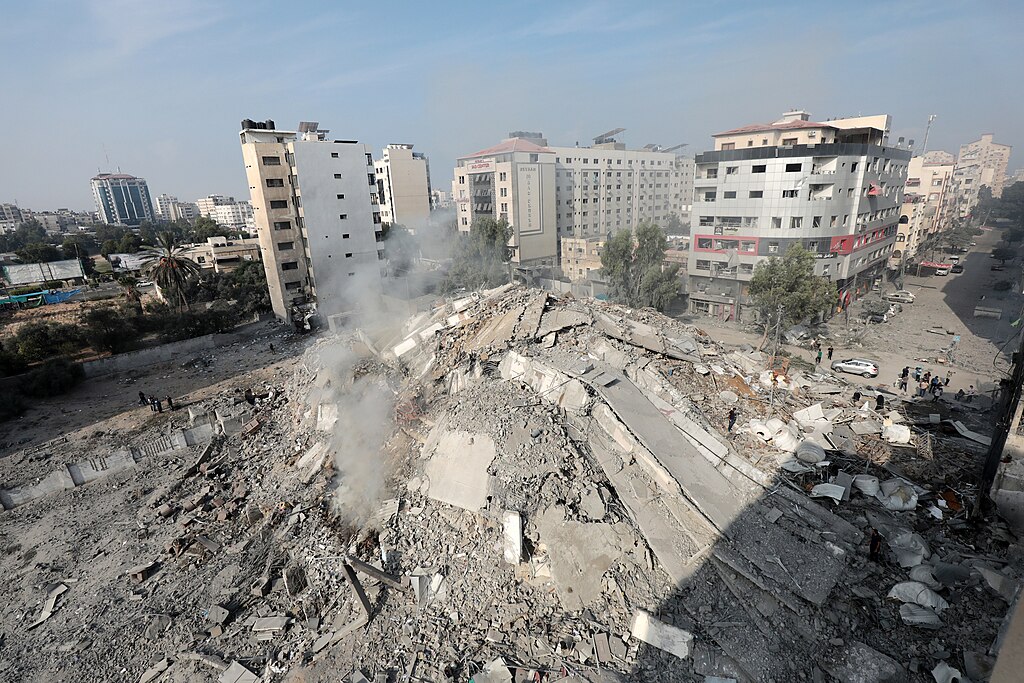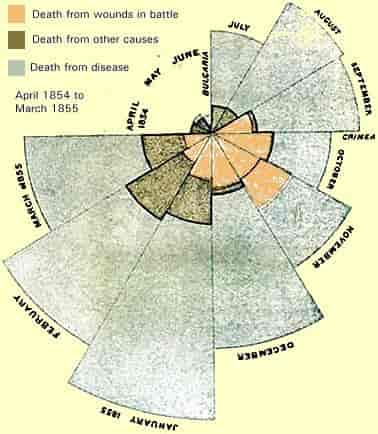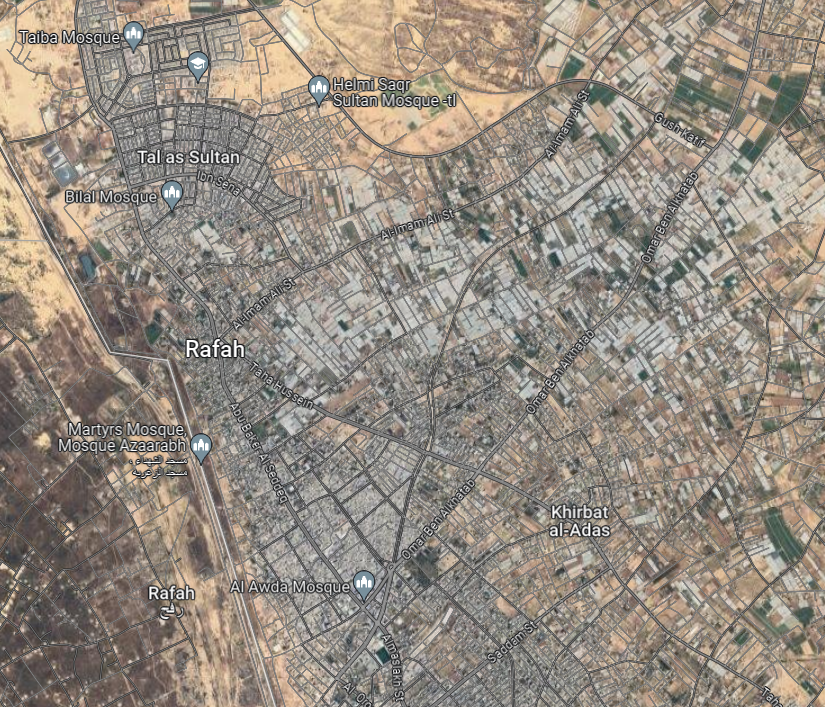
War and conflict throughout history have resulted in the suffering and deaths of countless people who did not participate as combatants. Unchecked murder, pillaging and destruction have been inflicted both as a form of terror on the conquered and a bounty for the victors. Lack of concern for non-combatants (and those wounded in battle) also results in numerous deaths and physical and psychological trauma simply by proximity to targeted forces.

War and conflict also generally result in the collapse and destruction of civil infrastructure, such as those supplying electricity, clean water, sanitation service, food, heat and other essential services. Healthcare infrastructure relies on many of these services and is easily disrupted during war and conflict. Supplies and drugs needed for treatment and prevention of health conditions can be disrupted or diverted, and healthcare professionals can be injured, or even deliberately targeted, abducted or coerced to assist war efforts. Hospitals and clinics quickly become emergency departments solely focused on triage and life-saving surgery of patients with horrific physical injuries, also serving as morgues for mounting casualties as well as refugee camps for survivors.

Public health takes a back seat under these conditions, as an afterthought to be dealt with later when hostilities are over. A wide variety of infectious diseases can run rampant under these conditions, such as diarrheal diseases, respiratory infections, hepatitis, measles, rubella, and even vector-borne diseases such as malaria, leishmaniasis, or even the plague or murine typhus. Florence Nightingale famously showed this in her graphs of mortality of English soldiers during the Crimean War. Prolonged conflict can lead to chronic malnutrition and a lapse in both surveillance and vaccination and other preventive services, which all exacerbate the impact of infectious diseases.
Warring parties have certain obligations under International Humanitarian Law, or the Geneva Conventions of 1949, which was established after the second World War. The Fourth Geneva Convention defines protected persons as “those who find themselves in the hands of a party to the conflict or occupying power of which they are not nationals”. The convention requires humane treatment of civilians and prohibits murder, torture and cruel, inhumane or degrading treatment. Different articles of the Fourth Geneva Convention require that wounded and sick civilians receive medical care and attention; stipulate that civilian hospitals are respected and protected by all parties; require an occupying power to ensure the provision of food and medical supplies to the population, as well as the maintenance of medical and hospital services, public health and hygiene; and allow the free passage of supplies for medical and hospital stores for wounded and sick civilians, as well as maternity cases. Article 56 of the Fourth Geneva convention specifically emphasizes the importance of preventing the spread of contagious diseases and epidemics. As the Article states, “Medical personnel of all categories shall be allowed to carry out their duties.”
The Geneva Conventions have been ratified by all 196 states in the UN, promising to abide by these rules. Certain provisions, that are considered part of customary international law, apply even to non-signatory states. These include the protection of civilians, especially the wounded and sick, as well as medical personnel and facilities. When these provisions are violated, those violations are generally referred to as “war crimes”. The denial of medical care to civilians in need can constitute a war crime under specific circumstances, such as during occupation, and when the failure to provide care is deliberate and results in significant unnecessary suffering and death. These violations can be prosecuted in national or international courts or special tribunals, such as the International Criminal Court in the Hague.
Many countries incorporate the Geneva Conventions into their military training and doctrine, and there have been numerous instances where humanitarian and medical aid has been provided to civilians by warring parties under international humanitarian law. However, unfortunately, the track-record of armed conflicts since the ratification of the Geneva Conventions are full of violations and war crimes. Examples run from the Vietnam War in the 1960s to the Rwandan Genocide in the 1990s and the Syrian and Iraq Wars in the 2010s. Currently, the two biggest armed conflicts in the world are the Ukraine War and the War in Gaza. Both conflicts feature atrocities such as the targeting of medical infrastructure, lack of concern for civilian casualties, and lack of provision of essential services and medical assistance to civilians, including public health services.

For example, close to 2 million people are concentrated in make-shift refugee camps in the city of Rafah in Gaza. These civilians have been denied reliable electricity, clean water and sanitation services since the conflict started four months ago. Out of the 36 hospitals originally located in Gaza, only 16 hospitals in the Gaza Strip are operational, and even those are under severe strain to deal with civilian injuries and diseases. Medical staff and personnel are at risk of harm both in hospitals and as first responders. According to the WHO, even at the end of December, more than a month ago, 93% of the population in Gaza faced catastrophic levels of hunger, with high levels of malnutrition. While some humanitarian aid trucks are allowed to enter Gaza, it’s a tiny fraction of the aid that was provided before the start of the current round of conflict.
Infectious diseases are already spreading rampant in the Gaza Strip, with 159,000 cases of diarrhea reported just since mid-October, along with 224,000 cases of upper respiratory infections, thousands of cases of hepatitis A, and many cases of meningitis, skin rashes, scabies, lice and chickenpox. Many people, including young children, die from these diseases which could be preventable with access to medications and antibiotics. Testing and surveillance are non-functional and diagnosed cases can’t be isolated. There is further concern of additional epidemics, in particular cholera and chronic diarrhea, with every day without these tragedies counted as a blessing.
Not being an expert of international humanitarian law, I will leave it to the lawyers to argue if a specific action or lack of actions constitutes a war crime, or if it violates customary humanitarian laws or articles of the Geneva Conventions. I just know that it is difficult to witness civilians suffering under these terrible conditions in 2024. I can only implore the leaders of warring parties, all over the world, along with many others, to find enough compassion in their heart to prioritize the life and health of civilians above all else, as that is the only way to avert further suffering and catastrophe.

Comments